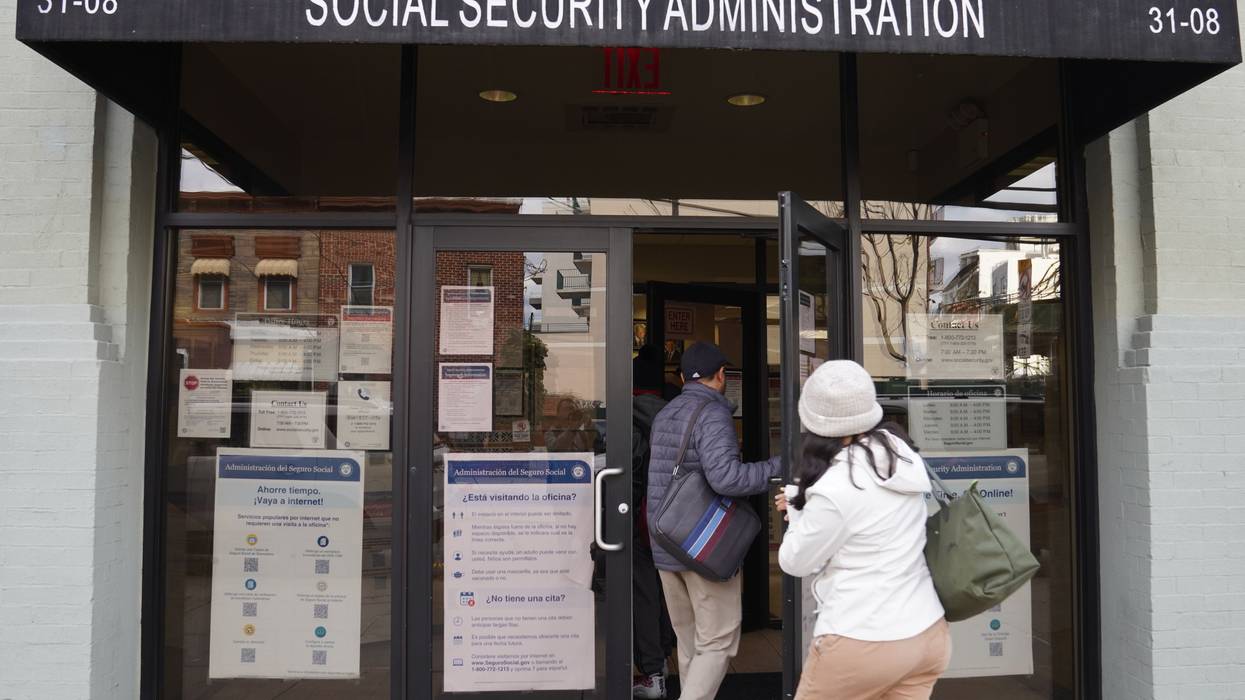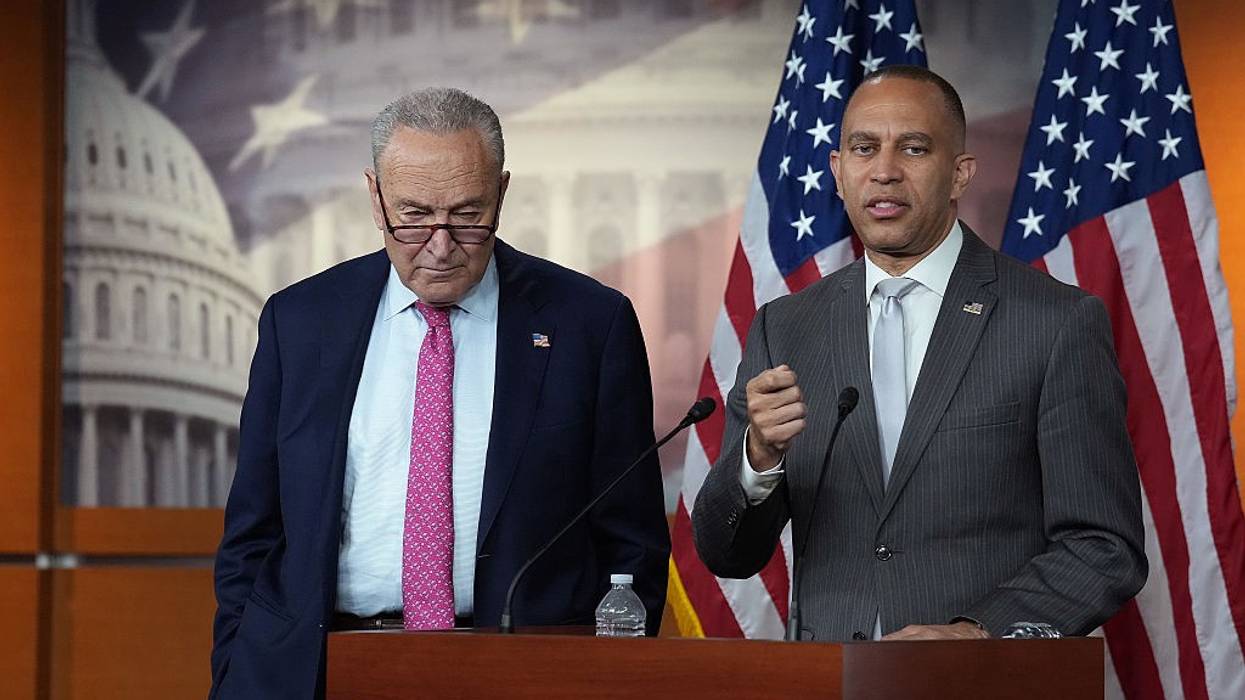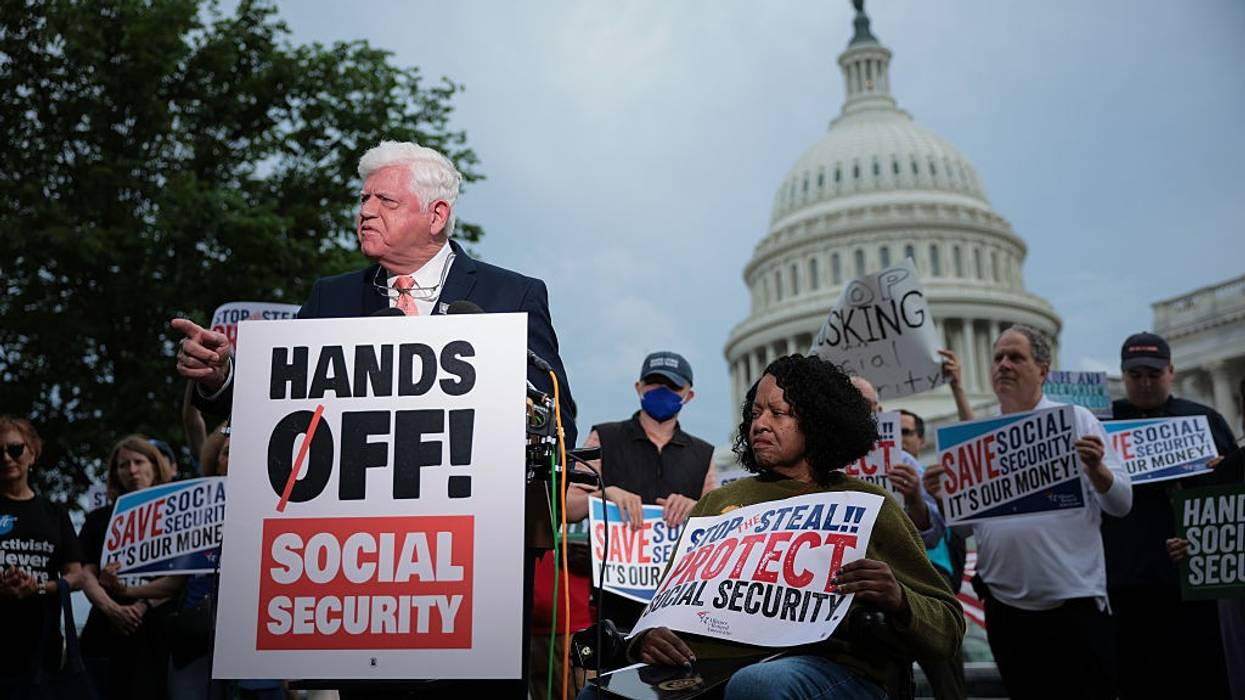Social Security Agency Tells Workers to Give ICE Details About Beneficiary Appointments
"ICE is attempting to infiltrate the Social Security Administration too—using field offices to further round up and detain people, and scaring people out of getting the benefits they need."
Leaders at the Social Security Administration are reportedly instructing agency employees to provide Immigration and Customs Enforcement with information about in-person beneficiary appointments.
Wired reported Friday that the instructions were "recently communicated verbally to workers at certain SSA offices." The outlet quoted an unnamed employee with direct knowledge of the orders who said that "if ICE comes in and asks if someone has an upcoming appointment, we will let them know the date and time."
Undocumented immigrants are not eligible for Social Security benefits, though they do contribute tens of billions of dollars per year to the program through payroll taxes. Noncitizens can qualify for Social Security, but Wired noted that they are "required to appear in person to review continued eligibility of benefits."
"Social Security numbers are issued to US citizens but also to foreign students and people legally allowed to live and work in the country," the outlet observed. "In some cases, when a child or dependent is a citizen and the family member responsible for them is not, that person might need to accompany the child or dependent to an office visit."
The revelation that SSA workers are being told to hand over appointment details to ICE came amid an ongoing congressional fight over proposed reforms to the immigration agency that has resulted in a funding lapse at the Department of Homeland Security, which has a data-sharing agreement with the Social Security Administration.
“You're seeing SSA becoming an extension of Homeland Security,” Leland Dudek, the former acting commissioner for the Social Security Administration, told Wired.
SSA is currently led by Frank Bisignano, a former financial services CEO who backed the Elon Musk-led assault on government agencies via the Department of Government Efficiency, or DOGE.
Indications that ICE has Social Security field offices in its crosshairs as part of the Trump administration's large-scale, lawless mass deportation campaign sparked outrage. In a joint statement, Reps. John Larson (D-Conn.) and Richard Neal (D-Mass.) said that "under this administration, ICE has been transformed into Donald Trump’s secret police force—accountable to nobody."
"They are killing Americans in our streets, sending masked agents to snatch mothers from their children, and illegally blocking members of Congress from even visiting their facilities," Larson and Neal said Friday. "Today, we were informed that ICE is attempting to infiltrate the Social Security Administration too—using field offices to further round up and detain people, and scaring people out of getting the benefits they need."
"It was bad enough that Donald Trump and Kristi Noem have already used Social Security as a means to get immigrants to ‘self-deport.’ We led the effort to stop them and passed legislation to prevent them from continuing that policy," the Democrats added. "Now, Congress needs to act to end ICE’s reign of terror in our communities and block this cruel and inhumane plan.”


